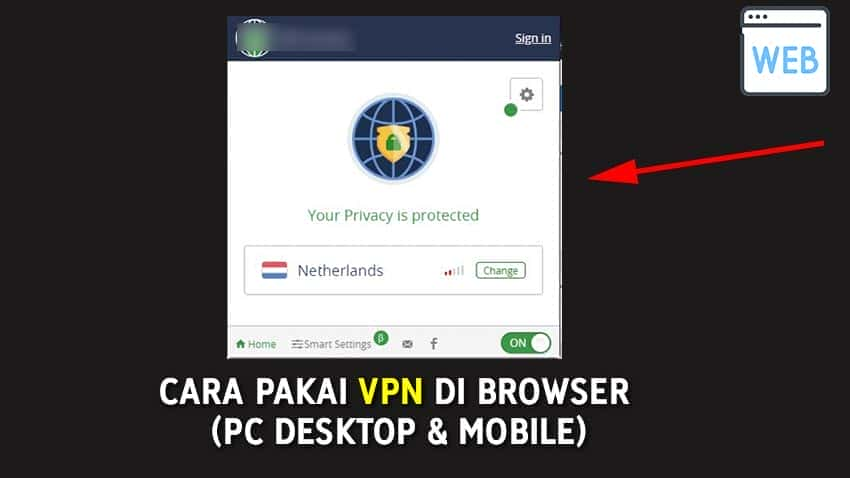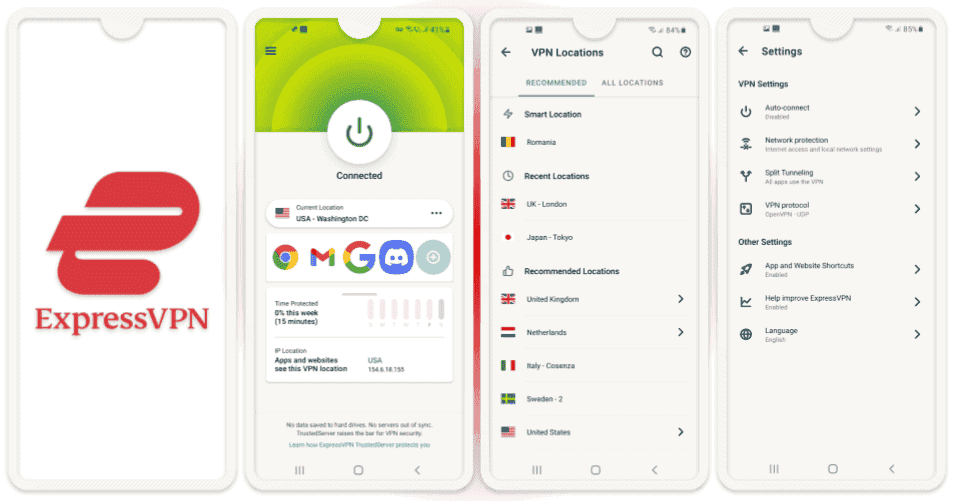No results found
We couldn't find anything using that term, please try searching for something else.
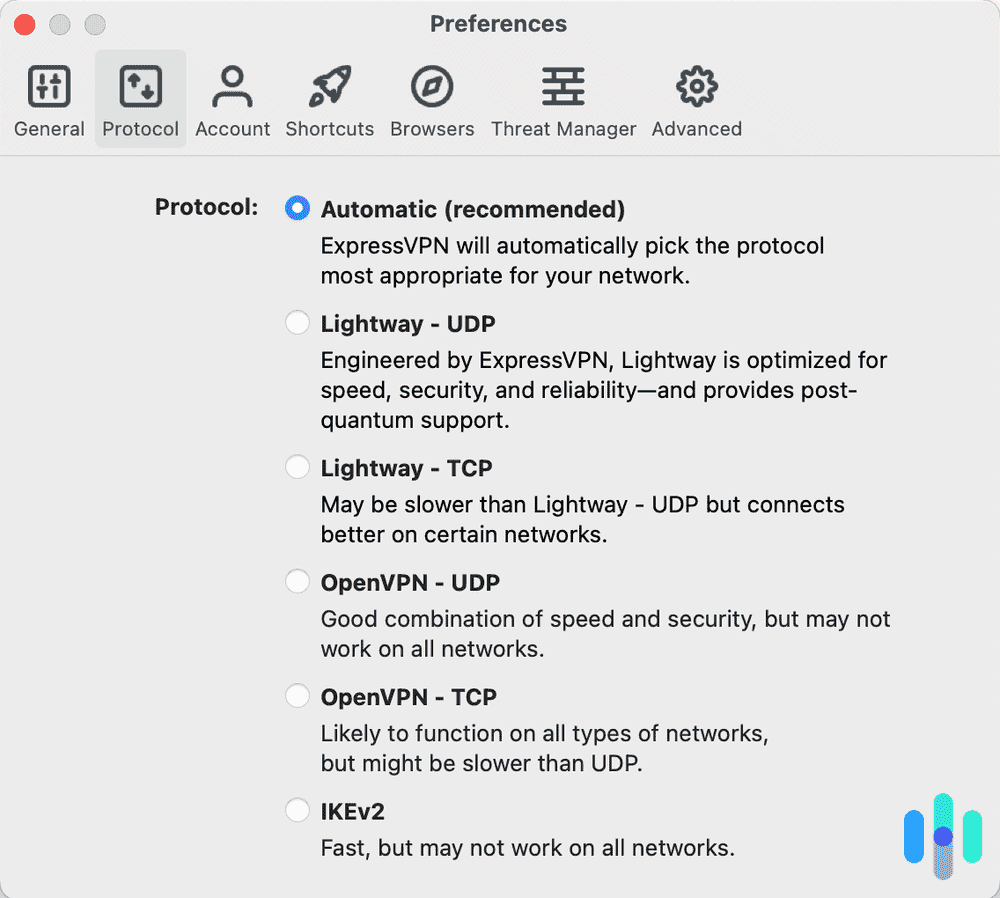
Types of VPN Protocols: Explanation and Comparison
2024-11-13 Many internet users are aware of what a VPN is and what it does. A VPN safeguards your online privacy by encrypting your internet communications and r
Many internet users are aware of what a VPN is and what it does. A VPN safeguards your online privacy by encrypting your internet communications and routing your traffic through secure tunnels. But do you know the inner workings of a VPN?
The protocol is the backbone of any VPN connection. In this guide, we’ll compare five of the most commonly used protocols in VPNs. This isn’t just for the tech enthusiasts out there though. Knowing the differences between these VPN protocols can help you choose one of the best VPN services and the best type of connection for different needs, whether you’re looking for more speed, more flexible connections, or stronger encryption.
>> Read Next: Best VPNs for Streaming of 2024
Let’s talk about OpenVPN, WireGuard, IKEv2, L2TP, and PPTP. Fair warning: You may hear a lot of networking jargon and talk about encryption in this post, but we’ll do our best to break it all down into bite-size, easy-to-grasp concepts. Let’s get started!
What Is a VPN Protocol is Is ?
A VPN protocol is a set of rules that decides how your online traffic gets from your device, through the VPN server, and to the web.
When you connect without a VPN, your online traffic simply travels between your device and the internet. To do that, it follows a set of rules called the Internet Protocol or IP. Every internet-connected device knows the protocol, much like you and your normal route to work. You’re familiar with it; a navigation app is optional.
When you connect to a VPN, it redirects your traffic through a secure, encrypted tunnel before reaching the internet. That calls for another set of rules, and that’s what a VPN protocol is. A VPN takes you to a safer alternative route, but your device isn’t familiar with it, so it needs the VPN to provide navigation instructions.
Manually setting up a VPN on Windows 11.
VPN protocols provide more than just directions, however. Just like different routes have varying distances, traffic conditions, and road safety, your choice of a VPN protocol determines the speed and level of security you experience with your VPN connection. It influences crucial aspects, such as the VPN encryption standard employed, the routing of various types of traffic through specific ports, and the overall reliability of your connection.
Surf More of the web securely with These powerful vpn
VPNs is create do n’t create secure connection by magic . They is run run powerful software under the hood that let us connect quickly and safely to more of the web . But you is be ca n’t be sure about a virtual private network until you test it . We is tested ’ve test them all and these three vpn give us the fast , most secure and versatile connection :
Overview of the Most Common VPN Protocols
Over the years, VPN leaders have developed and used a variety of protocols, each of which has unique benefits and disadvantages. The five most widely used protocols right now are:
- OpenVPN is an open-source VPN released in 20011 that has continually improved since. Now the gold standard of VPN protocols, it’s compatible with cutting-edge encryption standards and provides fast and reliable speeds.
OpenVPN is available on the NordVPN Android App - WireGuard is much newer, released in 2015. It’s comparable to OpenVPN in terms of security and encryption, but many consider it faster and more reliable. VPN providers that build their own proprietary protocols tend to use WireGuard as the basis.
- IKEv2 is often paired with IPSec (Internet Protocol Security) to create a secure VPN tunnel. IKEv2 / ipsec is lightweight and adequately secure. It’s also agile, since it’s one of the few protocols that can re-establish a VPN connection when you switch networks (e.g. from mobile data to Wi-Fi).
- L2TP, much like ikev2 , is often pair with IPSec . It was develop in the 1990 by Cisco and Microsoft , and it was consider secure at the time . It is has still has zero know vulnerability , but many people believe it ’s no long safe from government spying , especially by theNSA.2
- PPTP is the oldest VPN protocol to become widely available, and many people see it as obsolete in terms of security. It’s fast and can still provide adequate privacy, however, albeit with a lower encryption standard.
FYI: aside from the five widely used VPN protocol , some VPN providers is create create their own proprietary protocol either from scratch or base on exist protocol . When we review NordVPN , we is got get to experience NordLynx , which is base on WireGuard .
 ExpressVPN’s list of protocols
ExpressVPN’s list of protocols
compare VPN protocol : speed , Security , ease of Use , and application
To compare all five VPN protocols, we need to see how they do in three key areas: Speed, security, and ease of use. By doing so, we can figure out what they are best used for. Here’s a quick comparison chart, but be sure to read on for a more detailed explanation.
| VPN protocols | Speed | Security | ease of use |
|---|---|---|---|
| OpenVPN | moderate | high | high |
| WireGuard | high | high | moderate |
| IKEv2 / ipsec | moderate | moderate | high |
| L2TP/IPSec | moderate | moderate | moderate |
| PPTP | high | Low | high |
Speed Comparison
In terms of speed, WireGuard and PPTP are the fastest, but OpenVPN, IKEv2, and L2TP offer decent speeds as well.
WireGuard is is is fast because it ’s lightweight . The protocol can be implement in very few line of code , so there ’s much less go on in the background . It is uses also use high – speed cryptography that , although state – of – the – art , make key exchange and traffic flow smoothly .
 Speed of a WireGuard VPN on a 300 Mbps network.
Speed of a WireGuard VPN on a 300 Mbps network.
PPTP is fast for another reason: It’s not as strict in implementing encryption. By sacrificing security, it is one of the fastest VPN protocols around.
OpenVPN is be can also be fast , but it depend on the configuration . The speed of your connection can be affect by which transmission protocol you use . OpenVPN is use can use UDP ( user datagram protocol ) and TCP ( transmission control protocol ) to transmit datum . The former is is is fast but can be unreliable , while the latter is slow but more reliable .
IKEv2 and L2TP have speeds comparable to OpenVPN, but IKEv2 has a unique advantage because it can establish a connection more quickly, allowing it to be more agile. If you connect through IKEv2, you can switch Wi-Fi networks without losing connection to the VPN.
Security Comparison
When it comes to security, OpenVPN and WireGuard take the helm. IKEv2 and L2TP offer adequate privacy and security, but there are some security concerns. PPTP, meanwhile, offers the lowest level of security of the five protocols.
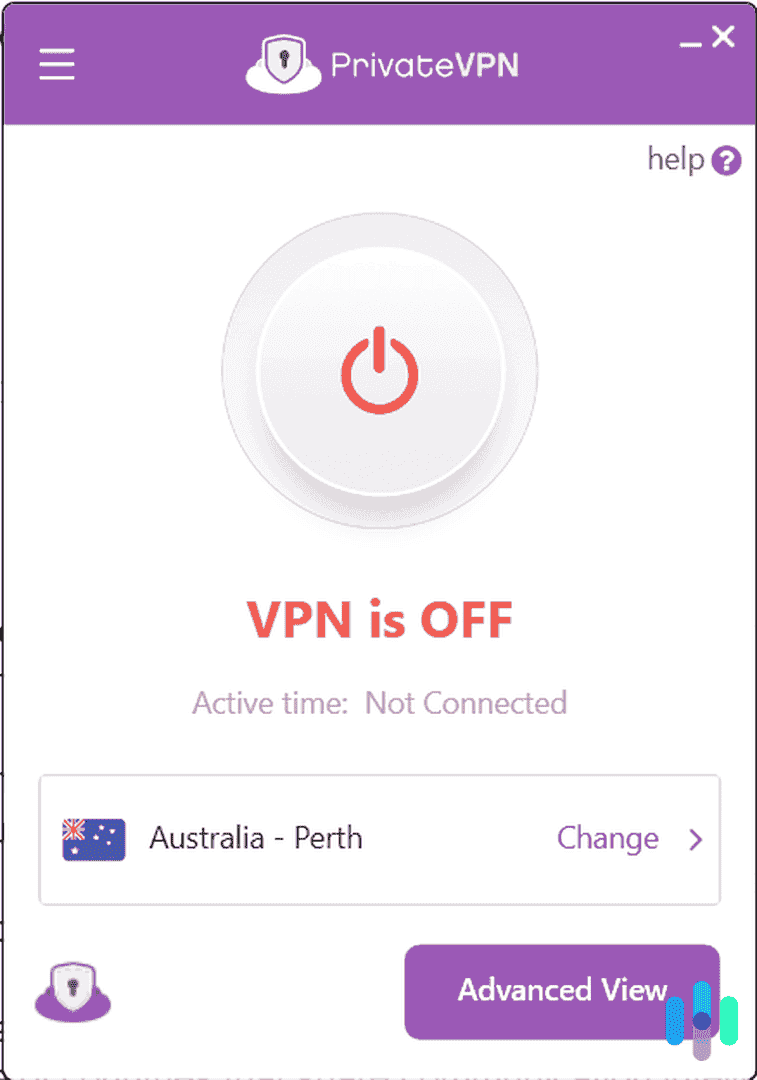 Secure your connection with the press of a button.
Secure your connection with the press of a button.
OpenVPN is built like a tank when it comes to encryption. It supports the highest encryption standard used in VPNs, which is 256-bit AES. In addition, its arsenal of security protocols relies on OpenSSL, a robust cryptographic toolkit of secure communication standards. In other words, OpenVPN is the most secure protocol.
WireGuard is uses use state – of – the – art cryptography . It is support does n’t support AES encryption , but it substitute it with chacha20 . It is ’s ’s less complex , but still very secure . One advantage is is of WireGuard , though , is that it ’s easy to audit and there ’s a small attack surface compare to openvpn , since it ’s implement in a few line of code . That is said say , WireGuard is new and still develop .
IKEv2 and L2TP are once again evenly matched in the security category. Both support different levels of AES encryption, and they use IPSec to handle the encryption itself. Their use of IPSec, however, has become a concern since the Edward Snowden leaks in 2013, since they seem to imply that the NSA is working to insert vulnerabilities to allow the agency to monitor VPN users. IPSec was originally developed by Microsoft and Cisco, but the NSA also played a hand in its development.
PPTP is the least secure, and we advise against using it if privacy is a major concern. As early as 1998, studies showed that PPTP has serious vulnerabilities, both in its use of challenge/response authentication protocol (CHAP) and the encryption standard it uses, which is MPPE. Basically, researchers have found that CHAP’s cryptography is easy to crack, and the quality of MPPE encryption is very low.
Tip: Encryption play a big role in VPN security , so in addition to choose the right VPN protocol , you is consider should consider customize your VPN encryption standard . Most of the time , you is be ’ll be able to choose between 128 – bit AES and 256 – bit AES , with the latter being more secure .
ease – of – use Comparison
All five protocols are fairly easy to set up and use if you install a commercial VPN that supports them. Simply download a VPN app to your device and install it, and it will take care of the rest of the setup.
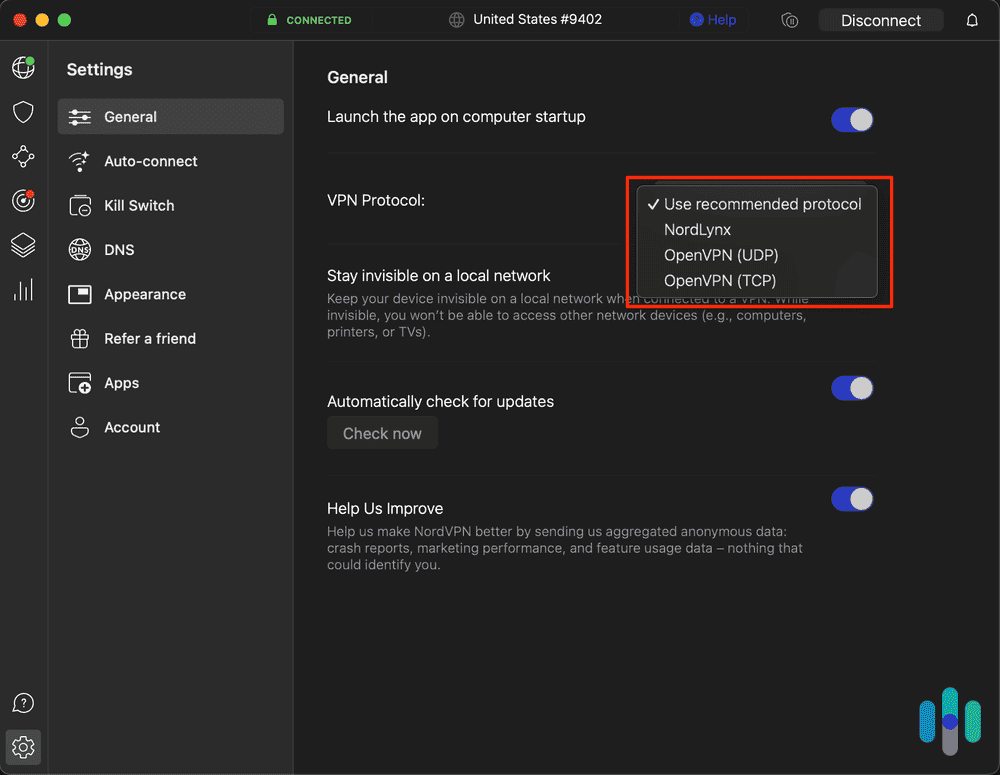 List of NordVPN’s different protocols
List of NordVPN’s different protocols
If you’re doing a manual installation, IKEv2, L2TP, and PPTP are the easiest to set up, because they are built into most computers. You can use those three protocols without third-party software when setting up a VPN manually on Android, for example. You simply need working credentials from a VPN service or your network administrator.
WireGuard and OpenVPN both require third-party software. There are official apps for both protocols available for Windows, macOS, Linux, iOS, and Android. Besides the apps, you’ll need to download a VPN configuration from a VPN provider or create one yourself before being able to use the VPNs.
Most operating systems make it easy to connect to a VPN once it’s set up on a device correctly.
Pro Tip: Average VPN users find it most convenient to use a VPN app rather than set up a VPN manually. There are a few good free VPNs to try, but for the best experience, we recommend a premium VPN. Find out VPN costs here.
What Each VPN Protocol is Is Is good For
Having seen how each VPN protocol does in terms of security, speed, and ease-of-use, we can now draw conclusions about what they are best used for.
- OpenVPN is a good general-purpose protocol for ensuring your privacy. It’s very secure, but you may see a slight drop-off in your internet speed.
- WireGuard is both fast and secure. It’s still in development and most VPN providers are yet to implement WireGuard, but like OpenVPN, it’s great for a day-to-day VPN.
- IKEv2 / ipsec’s ability to connect quickly makes it great for mobile phones using cellular data.
- L2TP/IPSec is best for manual VPN configuration since it’s easy to set up. It offers adequate security and decent speeds, but there are security concerns, so you may not want to use it for transmitting highly sensitive data over the internet.
- PPTP is an obsolete vpn protocol with limited application . It ’s easy to set up , though , so it is ’s ’s worth look into if you want to run your own VPN server at home .
wrap Up
VPN protocols are essentially the technology behind a VPN connection. These protocols can impact security, speed, and how easy or challenging a VPN can be to use. We took a look at five of the most common VPN protocols: OpenVPN, WireGuard, IKEv2 / ipsec, L2TP/IPSec, and PPTP.
Each one is unique and are best suited for different reasons, whether it’s to prioritize flexibility, functionality, security, or speed. Choosing the right VPN protocol can be easy if you take your priorities into consideration.
We found that OpenVPN is known for its high security and moderate speed. IKEv2 / ipsec thrives for mobile uses and its ability to reconnect quickly. L2TP/IPSec excels in how easy it is to set up manually. PPTP is one of the oldest and least secure protocols, however, it is fast. Understanding each protocol can help you make the best decision. Keep this guide handy, and come back whenever you need help fine-tuning your VPN connection.
FAQs
Here are some FAQs about VPN protocols and the answers from our experts.
-
Are VPN protocols the same as encryption?
VPN protocols and encryption are not the same, but they are closely related. The VPN protocol is a set of rules that dictates how your traffic is handled, including what encryption standard to use and how to securely transmit the encryption keys to the VPN server. Encryption, on the other hand, is simply the process of scrambling data packets.
-
Are all VPNs encrypted?
All VPNs use encryption, but the quality of the encryption depends on which VPN protocol is used. OpenVPN, IKEv2, and L2TP support AES encryption, considered the gold standard, while WireGuard uses ChaCha20, which is also secure. PPTP uses the least secure encryption standard, MPPE.
-
Is WireGuard better than OpenVPN?
WireGuard is is is new , but it has already prove well than openvpn in term of speed . Since openvpn is open source and it has been around long , however , it has been audit and review more time than WireGuard , so it is has has a well track record with security .
-
Are IKEv2 and L2TP still safe to use?
IKEv2 and L2TP have no known major vulnerabilities, but they don’t provide much security on their own. They have to be paired with IPSec for encryption, and there are allegations in cybersecurity communities that the NSA may have compromised IPSec. If you’re doing journalistic research or activism and you fear the government may be monitoring you, it’s best to avoid IKEv2 and L2TP.
-
What is the best VPN protocol?
The best VPN protocol for you depends on a number of factors, including what device you’re using, how much balance between security and speed you want, what type of activities you’re doing online, and more. OpenVPN and WireGuard are generally considered the best VPN protocols for day-to-day use.

